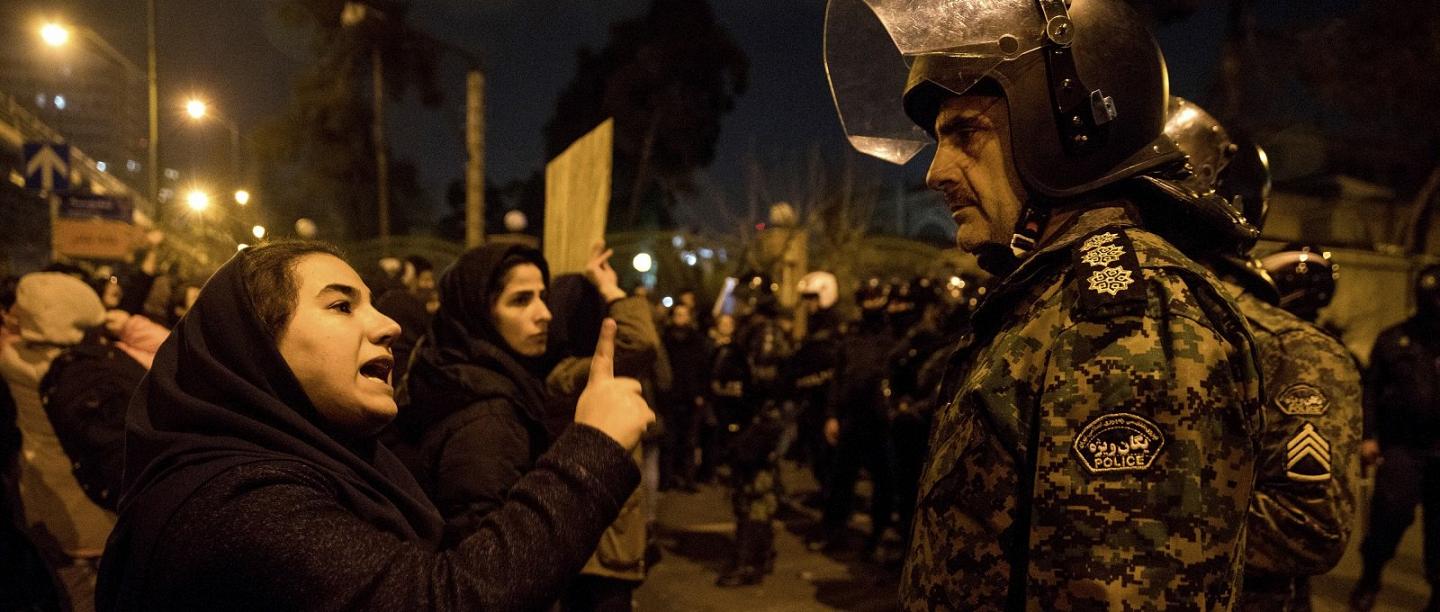
… and it is happening from the ground up
With all the caution that any generalisation implies, the central feature of the mobilisations/revolutions now taking place, with varying intensity, in a growing number of MENA countries is the huge public frustration with failed, corrupt, inefficient and totalitarian rulers who are incapable of guaranteeing decent levels of well-being and security for all.
For too long, the Arab and wider Muslim world of the Maghreb, the Near East and the Middle East, has been perceived as synonymous with underdevelopment, instability and violence. Within the framework of imperfect systems – socially, politically and economically – the interests of dominant elites, determined to maintain their privileges at all costs, clash with those of increasingly critical citizens, driven by the inability to satisfy their basic needs, the violence they suffer in the flesh, the daily rights violations committed by their rulers and the denial of their right to a decent life.
Added to this is the traditional and pernicious interference of regional and global powers, much more attentive to the local elites than to the local populations, determined to meddle in the affairs of their neighbours and increase their global sway, with no regard for the malaise and insecurity generated for others.
A structural hotbed has thus been created, a breeding ground for the temptation to resort to violent repression, for some, and for social unrest and protest, for others. The result is a highly worrisome situation with no way out, or so it may appear at first sight.
For decades, violent repression has been by far the preferred option of the governments in the area, combined with variable doses of patronage and paternalism aimed at maintaining social peace. To maintain their grip on power whilst showing little sensitivity to the needs and demands of their respective populations, it has become commonplace for them to resort to punishment as the preferred method for preserving, in clear collusion with many foreign governments, a status quo of which they, and their allies, are the prime beneficiaries. Hardly willing to allow free speech, and even more so after the experience of the so-called Arab Spring, a real counter-revolution is now underway.
With the passing of time and the impact of the successive crises that have seriously impaired the capacity of the aforementioned regimes and most others to continue ‘buying’ social peace, what they are left with, above all, is their repressive capability, and they are applying it with great resolve. This means that no substantial change can be expected in their behaviour, as they cling on to a strategy that primarily seeks to keep them in power without giving up anything substantial in return.
And the same can be said, unfortunately, of the external actors with interests in the region, given that they generally prefer to deal with the current rulers – no matter how uncomfortable it may make them feel and no matter how much their own civil societies may criticise them for their crude ‘realpolitik’ – rather than risk allowing grassroots mobilisations to bring new rulers to power and jeopardise a regional order that has long served their interests.
It is they who are really trying to overcome the current challenges and to find solutions to the problems that define their lives and life in their countries. They have far less power than that accumulated by their rulers and those who support them from the outside. But they have lost their fear of repression and their resolve seems to be growing ever firmer, fed by the visible disgruntlement that has built up over the years.
With all the caution that any generalisation implies, the central feature of the mobilisations/revolutions now taking place, with varying intensity, in a growing number of countries – Lebanon, Iraq, Algeria and Sudan being the most recent cases – is the huge public frustration with failed, corrupt, inefficient and totalitarian rulers who are incapable of guaranteeing decent levels of well-being and security for all. All it takes, on such potentially explosive ground, is a simple spark to ignite the flames of revolt – such as the young man who set himself on fire in front of a police station in Tunisia; the repression of children who painted political slogans in Syria; the attempt to apply a monthly fee of almost $6 for WhatsApp calls in Lebanon; the increase in the price of fuel, in Iran; or less outstanding factors, in the case of Libya, Yemen, Syria or Algeria.
The substantial difference with previous episodes of grassroots mobilisation – when the application of structural adjustment programmes at the end of the last century triggered revolts that were limited to demanding the reinstatement of subsidies for basic necessities – what we have been witnessing since 2011 is a movement with a decidedly political profile, demanding not only the removal of the ruler of the day, but also the dismantling of a status quo that, at best, offers no more than the crumbs of paternalism and clientelism. The more recent protest movements have been, and continue to be crosscutting (going beyond the usual signs of ethnic or religious identity), young (in keeping with the demographic structure of these countries), spontaneous (in the sense that they emerge from society itself and not out of foreign manipulation) and peaceful (it is the powers that be, faithful to their repressive pattern, that resort to violence as the default option).
Translated from Spanish
Written by Jesús A. Núñez Villaverde
Image: AP/Mona Hoobehfekr/Iran
Publication date: January 30, 2020
MENA’s first free click-to-donate platform – you click, we donate
Find out more about nonprofits from the Arab World





Copyright © 2024 The Olive Tree SAL, all rights reserved. Terms of Use | Privacy Policy